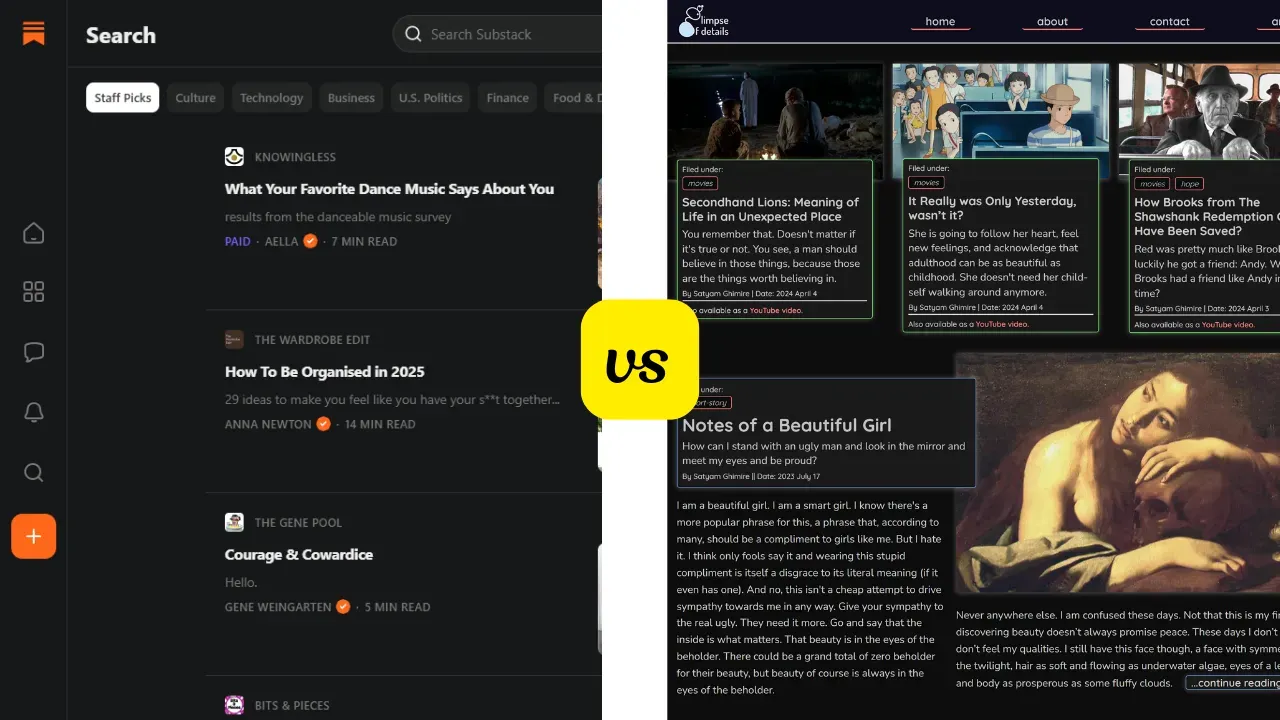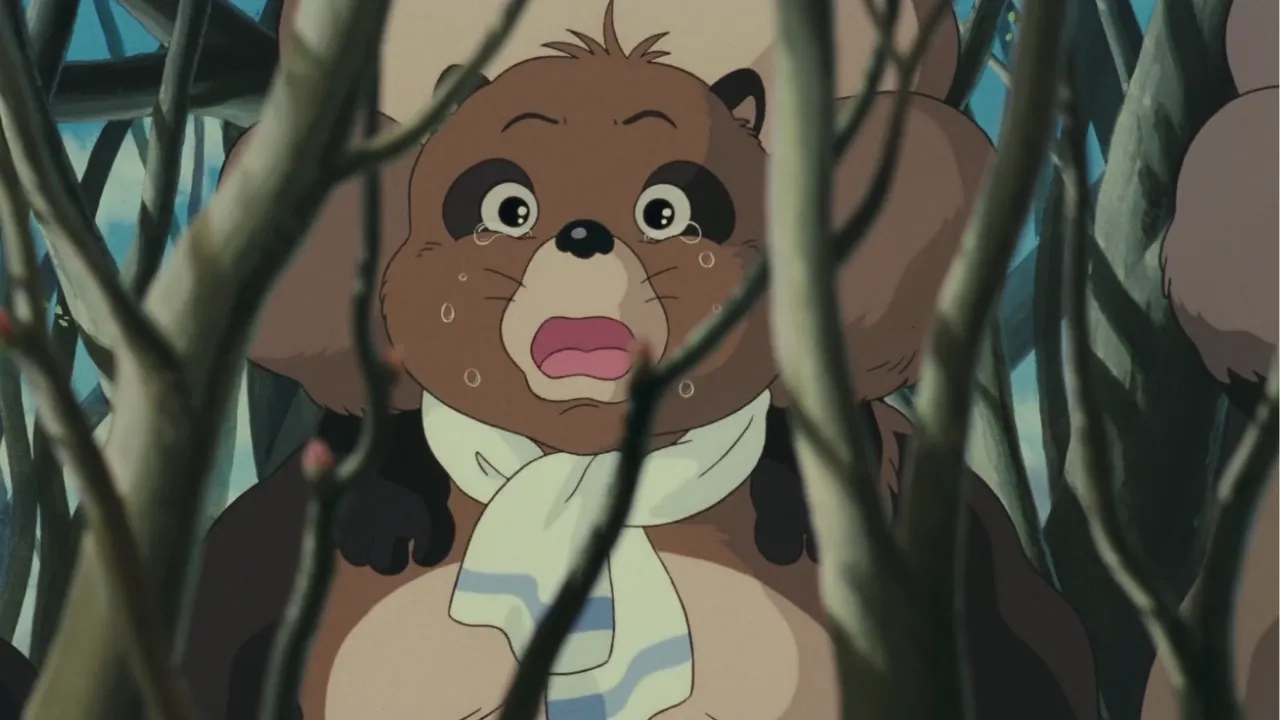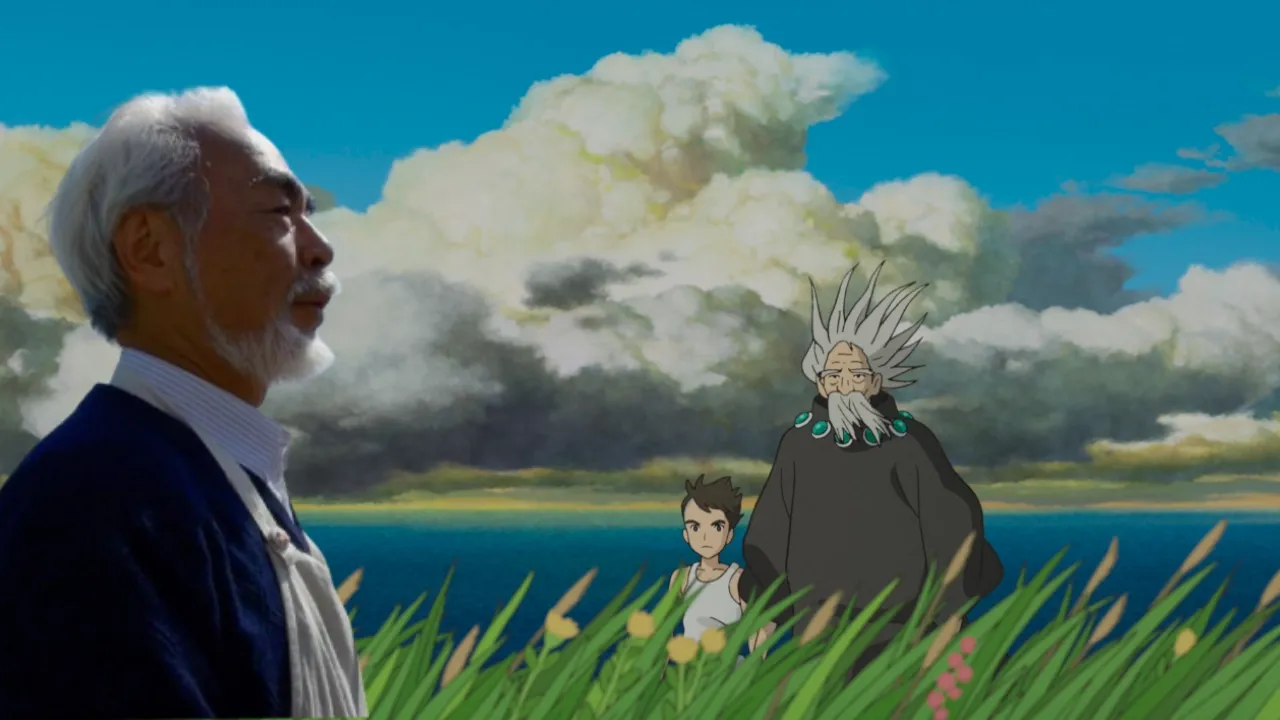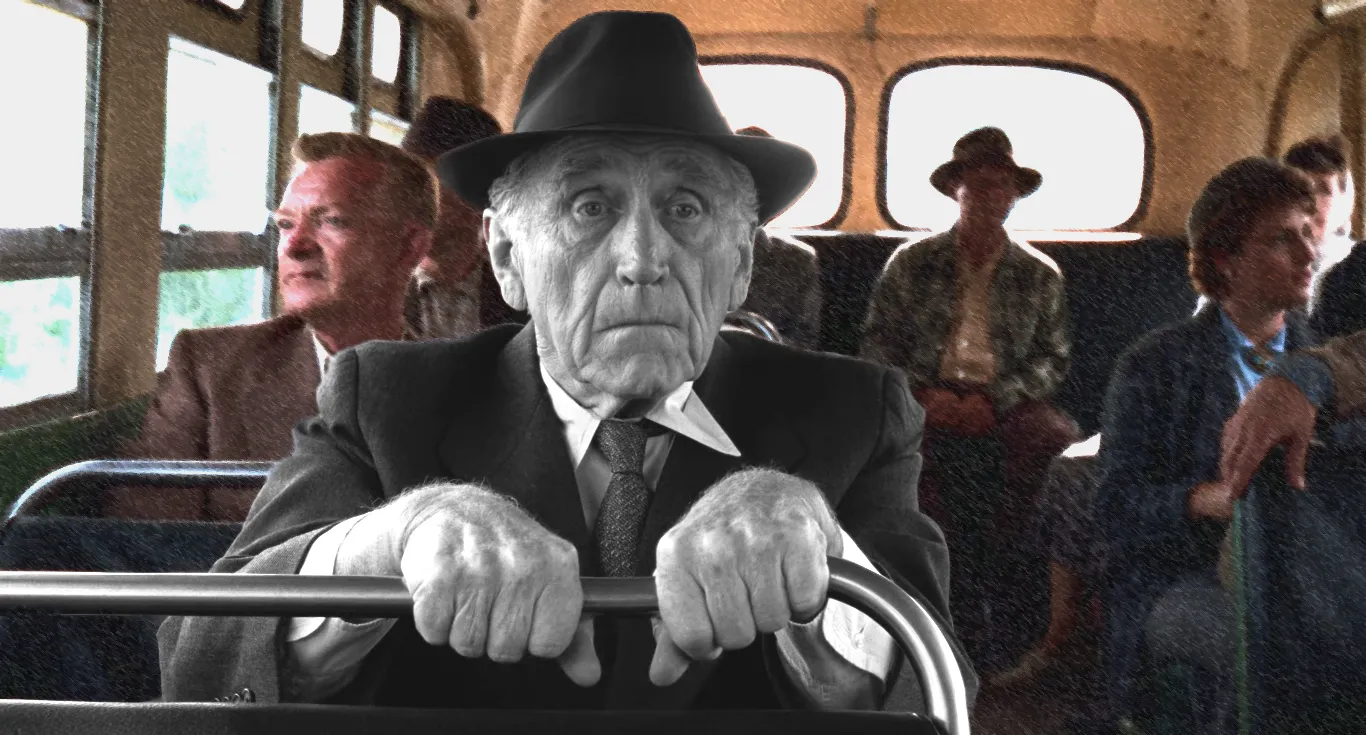Whenever this happens, I feel like an idiot. With hope I search for their advice, for the formula of their success. They also seem impatient to give it, and then I hear or read the same boring advice that I've known for ages. Just do it. Just start.
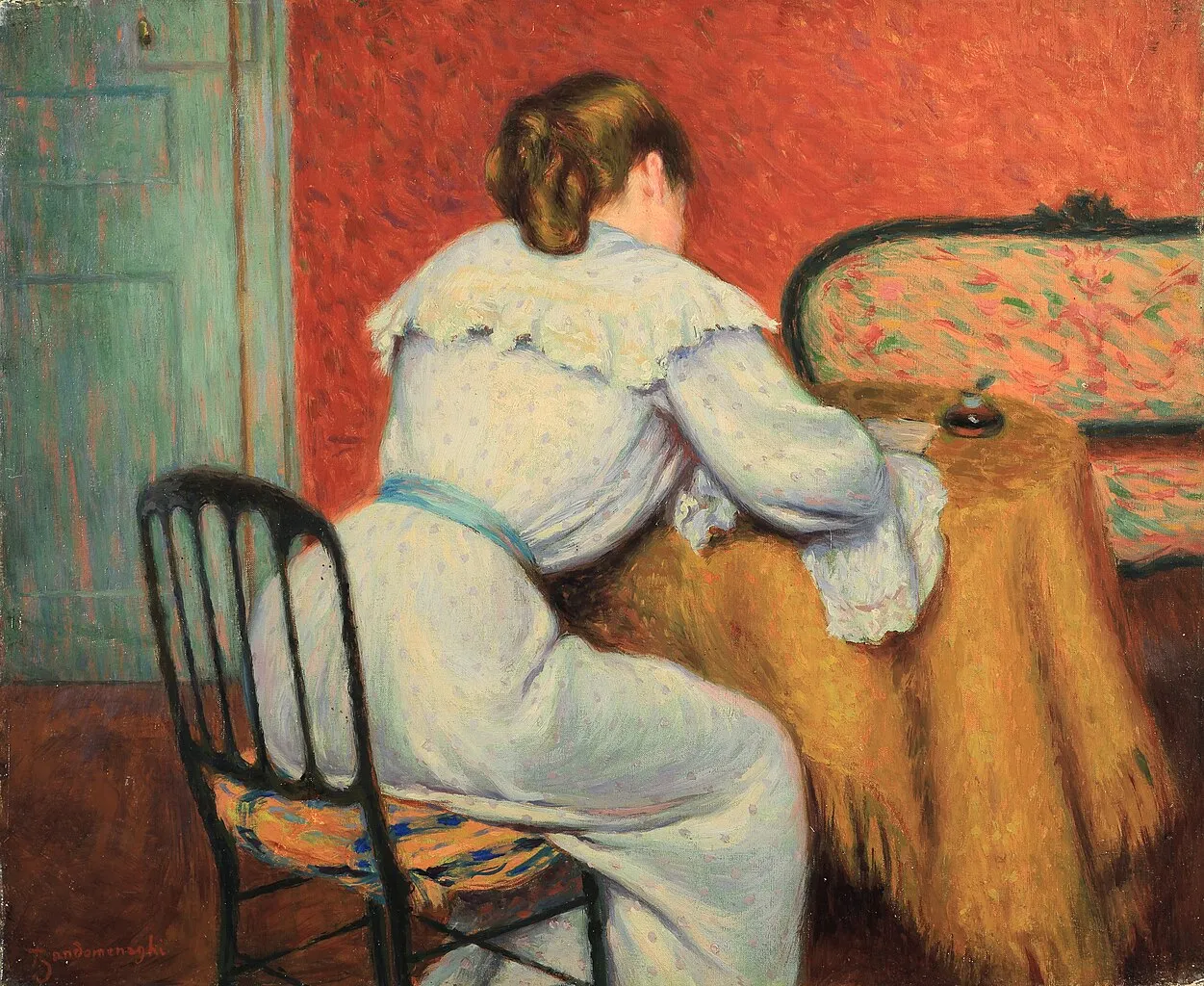
Then I search for other, better and more effective, pieces of advice and find them, but nothing seems to work. All I do is keep thinking and piling thoughts inside my head. “It's okay. It's inside the brain,” I console myself, “I can always take it out any moment I want and show it to the world.” But so many moments come and go when I want to just take it out and show it to the world, but I am never able to do anything.
Masterpieces inside your head don't matter. Only what's visible does. Only now I have come to realize that I did everything but start. I am always too afraid to start. I am always sharpening the axe but never hitting any tree. Then my mind suggested from some corner the same boring advice to me. Just do it. Don't think. Just start.
So in this article I am defending why “just do it” doesn't deserve the ignorance it gets, and why we should apply it as soon as possible. But for that, we need to change our perspective, from the asker that is us to the answerer that is them.
Why do they say it?
They get a chance to be interviewed, to feel important, to be listened to by the crowd with such curiosity and eagerness, and out of all fashionable and cool things they could say, they disappoint us by saying things that we already knew.
To fully grasp the reason behind this answer, we have to understand that every person who made it was a beginner at some point. They had the same fear as us. And with all their efforts, dedication, and discipline, they reached this current height of success.
If they could send a message to their younger self, what do you think they would improve and correct?
Probably to start earlier, to linger less with doubts and fears and mere excuses and just start, taking one small step, then another. And by advising us to just do it, they are actually screaming to their younger self to stop fearing and take action. “Start. Don’t think. You’ve thought enough. Just do it now. Please start.”
It astounds me when somebody asks some movie director or writer this question, “If you get a chance, which of your earlier work would you redo and correct?” And the answer is often some version of “none”. Then I ask myself, “Why none? Don’t you want to correct your first or the second work, the one where you were so naive and not as good as you are now?” This also serves my brain a thought that these people were best since the first day, so that’s why they don't choose to correct anything. This leads me to the conclusion that I need to master my strategy inside my head first, before I can take any action to bring it into the physical world. I once again return mid-way and take my axe back to the sharpening-stone. Then I never escape this barrier. It is so wrong. They don’t want to correct their earlier work because the mistakes they made at that time helped them become who they are.
This is my magnum opus
Let’s also talk about this belief that once an idea is executed, it should remain done forever. That you should never go back to it again. Because that will cost you your imagined reputation, and it will be shameful. So, to potentially prevent this, we should wait till we’re good, till our judgment is better. Till we are sure. Till we become some kind of master. But we forget that the only way to be good is through the path we are hesitating to walk on. We forget that great arts are made with practice, with repetitions. When you do your first work, that's one hundred percent perception of your work. And when you do more, then you can see in retrospect and improve. You will get better ideas as you go. If you feel like some ideas were not executed properly, because you were naive at the starting phase, you can always retake bits from your earlier work and use them again in a better way. We can always replicate the essence, the soul, the message of the same article, the same music, the same picture, the same video, again. Again and again. There is no rule to anything. We just love to complicate things and limit ourselves to support our imagined narrative. Did you know the only Oscar Martin Scorsese won was by directing “The Departed,” the remake of an already good Korean original?
And then there is this utterly optimistic belief. That your present idea is the best you’ll ever have in your entire life. So to work on it, you have to be a master first, otherwise it will be wasted by some weak work. This is so wrong, although it feels so right. Ideas, like dreams, are always, never predictable.
Six years ago I had this idea about a book. The thing I believed one hundred percent was a genius. That I will never top this. Somehow, with massive luck, my first idea is and will always be my best, and all others I create after it will live and die in its shadow. This for me, has utterly, in the most impactful and disastrous way, collapsed.
Because I thought of the second idea, and I had the same optimism about it. Then it collapsed too—when I thought of the third idea. And it collapsed too. By the fourth time, I realized it will collapse again and not even dust will remain of it.
Because with practice, everything improves. To luck out is an illusion in the creative business. So the best thing to do now is to start my first and complete it. And if in the future, I find that I am not satisfied with it, and I think of ways it could be improved, I pick it up again and create version two. There are no rules.
The talk is endless and the sources claiming its importance are infinite. If we are lucky enough to not kill our dreams, we are going to start someday—maybe “one day” like we always tell ourselves. And maybe we will be big and people will ask for our advice. I hope our advice will not be a repressed scream, targeted to who we are today, waiting too much and full of doubts.
So it comes down to a simple question: when are you starting?
In case you didn’t notice, I have done the same thing with this article. This is one of the first twelve articles I am posting on this website as “phase one”. And the book idea I talked about in the above paragraphs, I never actually worked on it. It’s all inside my brain, but I am going to “just do it” now. I have waited too long. I will post those here on this website. If you are here, thank you so much for reading.
Edit Feb 03 2025: I first wrote this 4 years ago and I am still editing the same 12 articles from “phase one”. I deleted the website twice out of frustration of not creating anything new. Don’t be like me. I hope I change.


